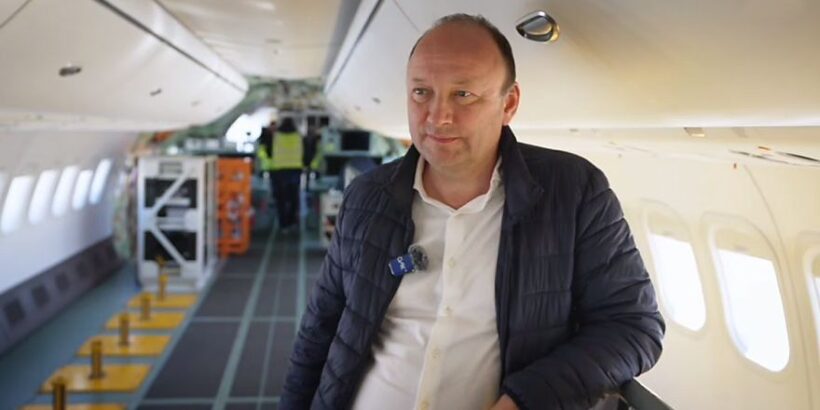On 29 April 2025, the prototype of the MC-21-310 (aircraft 73055, MC.0012) in a partially import-substituted configuration performed its maiden flight. Following the flight, Anatoly Gaidansky, Deputy General Director and Head of the Engineering Centre at PJSC Yakovlev, spoke to the United Aircraft Corporation (UAC) press service about the aircraft’s features, import substitution, upcoming flights, and outlined the timeline for completing certification and obtaining the Major Change Approval (MCA) for the airliner’s type design.
Gaidansky stated that in the near future, 4-5 flights will be conducted in Irkutsk as part of factory refinement tests. These flights will allow engineers and pilots to evaluate the aircraft’s performance in various modes and at different altitudes. Upon completion of this phase, aircraft 73055 will relocate to Zhukovsky, to the Flight Test and Refinement Complex of PJSC Yakovlev, where certification flights will take place.
The first prototype MC-21-310 features partial import substitution. Nearly all avionics, including control, communication, and navigation systems, have been replaced with domestic equivalents. Additionally, a Russian-made air conditioning system and a highly intelligent power supply system have been installed. These systems were the focus of the crew’s attention during the maiden flight.
The second prototype MC-21-310, with tail number 73057 (MC.0013), is undergoing full import substitution. On this aircraft, the remaining avionics components, all actuators—including the wing mechanisation system, primary actuators for the variable geometry of the wing’s working surface, and the stabiliser adjustment mechanism—will be replaced. The wheel braking system will also be substituted with a domestic one. Aircraft 73057 will become the first fully import-substituted MC-21 (MC-21-310RUS).
“Initially, this aircraft was equipped with Pratt & Whitney engines and mostly foreign systems. The key feature is its fully import-substituted wing. This is the first aircraft with a fully domestic wing, designed for a maximum take-off weight of 85 tonnes. The Pratt & Whitney engines have been removed and replaced with PD-14 engines. The aircraft is in the final assembly stage, with system debugging underway. We plan to have this aircraft airborne by mid-summer and begin certification flights,” said the Head of Yakovlev’s Engineering Centre.
When asked by the press service about the MC-21’s composite wing, Anatoly Gaidansky expressed absolute confidence that composite materials are the future of civil aviation. “Our competitors, Airbus and Boeing, are closely monitoring developments in this field,” he said, highlighting the advantages of the composite wing.
“First, it offers a more advanced aerodynamic shape, which allows for some reduction in fuel consumption. Second, composite materials are lighter than aluminium, providing potential for reducing the aircraft’s overall weight. Over time, as we gain operational experience with this material, we will achieve further weight savings. Most importantly, the material has an virtually infinite lifespan. Unlike metal, it is not prone to corrosion or fatigue failure, which will eventually give us significant advantages over aluminium,” Gaidansky noted.
“Currently, the gains in aerodynamics and weight are not yet substantial, but this is just the beginning. In decades to come, composite structures will dominate aviation, offering 10-20% weight advantages and significant improvements in aerodynamic performance,” he added.
In conclusion, Gaidansky outlined the number of flights and the timeline required for PJSC Yakovlev to complete certification and obtain the MCA, which will confirm the aircraft’s compliance with all aviation authority requirements and permit its serial production and operation. Approximately 220-230 flights will be conducted using the two MC-21-310 prototypes—73055 and 73057.
“We expect to complete all work by the end of summer 2026 and begin delivering the aircraft to airlines,” said Anatoly Gaidansky.


